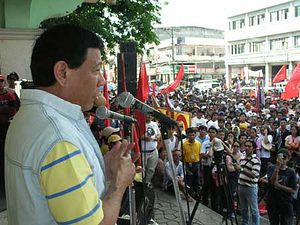Over the past week, the Philippines has launched an effort to evacuate its citizens from key Middle Eastern countries. The development highlighted the challenge that some Asian governments face in managing the fallout and consequences from rising U.S.-Iran tensions following the killing of Qassem Soleimani.
The emphasis on rising U.S.-Iran tensions in recent weeks has not been without implications for Asian states, be it their concerns about U.S. foreign policy, stability in the wider Middle East and the consequences for related developments such as oil prices or military deployments, or securing their own interests ranging from economic and diplomatic ties with Iran or the welfare of their own citizens.
Last week, the Philippines’ challenge in this respect was in the spotlight with its efforts to evacuate its citizens, with over 2 million Filipinos working in the Middle East and around 8,000 in Iraq and Iran. Last week, President Rodrigo Duterte ordered the military to prepare its assets for the evacuation of overseas foreign workers (OFWs) in Iraq, Iran, and nearby Arab countries, and the Philippine Department of Foreign Affairs subsequently also raised its alert level to Level 4 which called for mandatory evacuation in Iraq.
The shape of that evacuation response remains to be seen due to logistical arrangements needing to be finalized for repatriation as well as the complications raised by the eruption of the Taal volcano over the weekend which resulted in flight cancellations into Manila. But in a sign of progress on Monday, Philippine Defense Secretary Delfin Lorenzana, who chairs the inter-agency repatriation committee set up by OFWs in the Middle East, said that the first batch of returning workers from Iraq were scheduled to depart from Doha, Qatar.
In addition, Lorenzana also mentioned that the Philippine military was ready to deploy assets to help with the response. While few details have been publicly disclosed thus far, a number of assets, including the Philippine Navy’s Del Pilar-class offshore patrol vessel/frigate and a Tarlac-class landing dock, and the Philippine Air Force’s two C-130s and one C-295 transport aircraft, have been said to be ready to help with repatriation efforts as needed. A limited number of military personnel may also be utilized as well for assistance, even though Lorenzana clarified that they would likely be in civilian attire and unarmed due to sensitivities that may arise in certain countries.

































